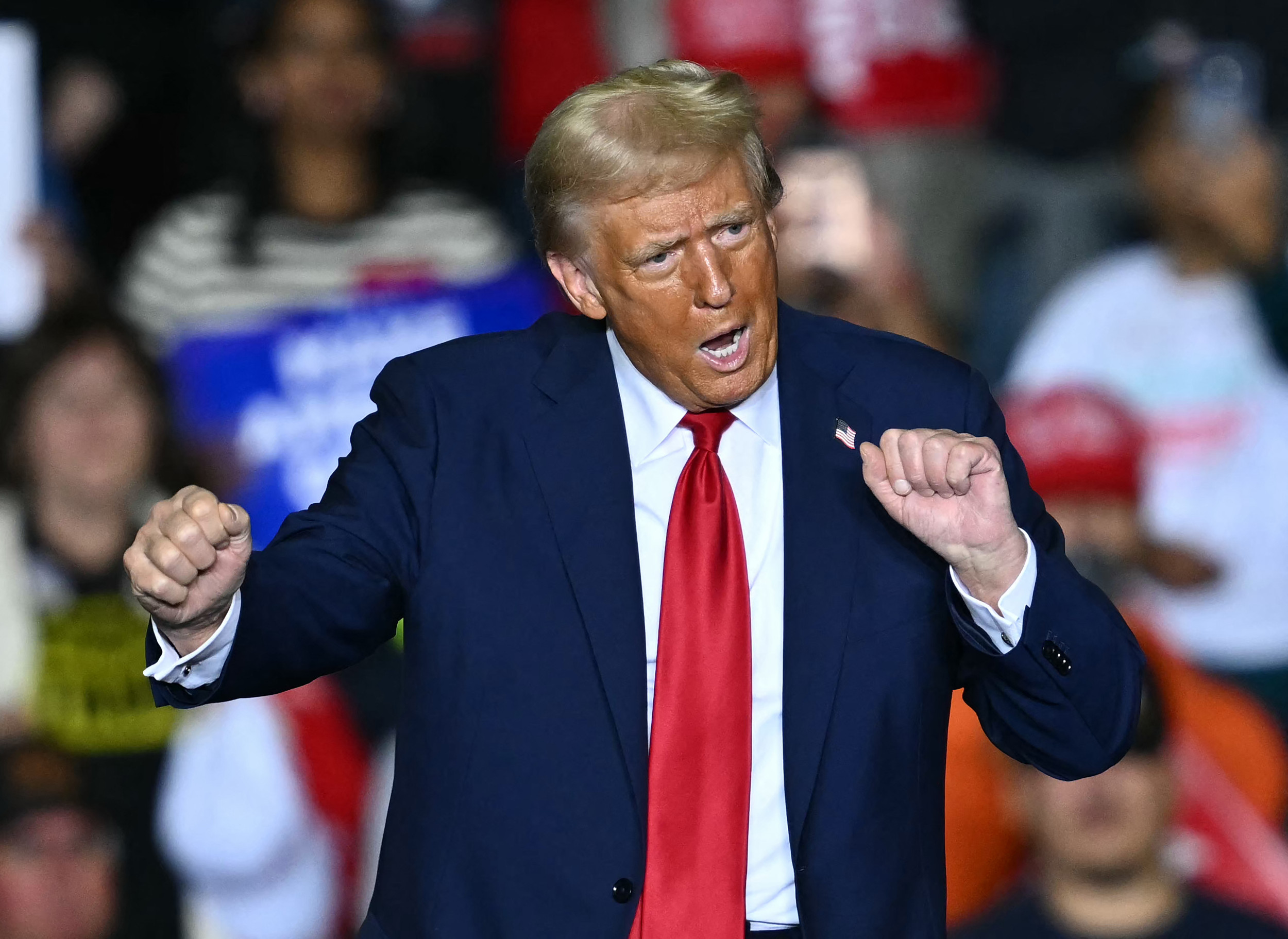Presidential elections are a mirror. Americans on the left and right—hooked on the outrage and intrigue our smartphones and screens consistently deliver—created a media environment that re-elected a president who embodies our perpetual indignation. Donald Trump is not an aberration, but the culmination of our collective appetite that craves spectacle over substance. And we can’t stop watching the messiness unfold as Trump has grown from reality TV star to influencer-in-chief.
Just as we brand ourselves on social media, curating our lives for likes and comments—crafting personas that reflect back what performs best—Trump craves the same validation. His rallies act as live focus groups, where he tests material—from nicknames like “Ron DeSanctimonious” to claims of immigrants eating four-legged friends, Trump tailors his approach to match his audience’s appetites, creating a feedback loop of mutual validation. As our lives are increasingly guided by algorithms, social media doesn’t just show us who we are—it shapes who we become. We’ve trained our brains to see the world through this lens, to filter our opinions through what gets traction online. Is it any wonder that Trump rose to power in a country addicted to the spectacle of itself?
Trump leveraged our love of conflict and outrage, delivering a constant stream of scandals to keep us hooked. We gave him the attention he craved, and in doing so, we handed him free advertising. Outrage is a currency, and our engagement—even in anger, even in confusion—shifts the Overton window of what is acceptable. Meanwhile, we neglected the quiet, unglamorous work of democracy—volunteering in our communities, engaging with local government, or calling our lawmakers with solutions to better the places we live. We chase correctness rabbits online, creating the appearance of activism while neglecting its substance.
Former President Donald Trump dances onstage after his speech during a campaign rally at the PPL Center in Allentown, Penn., on Oct. 29, 2024.
ANGELA WEISS/AFP via Getty Images
When approximately half of adults in the U.S. lack literary proficiency, is it any surprise we elect leaders who speak in soundbites rather than solutions? According to Pew Research, 54 percent of U.S. adults consume news on social media at least sometimes, cultivating opinions based on algorithms that feed our preconceived notions and inflame our biases. The result? Intellectual curiosity and rigor have been replaced by overconfidence in half-formed takes. Trump profits from and furthers our disdain for dialogue, expertise, and nuance—the inevitable result of a society that rewards surface-level engagement and punishes complexity.
As we run from meaningful engagement with our democracy, the institutions we rely on are struggling. Not because of a single man, but because we stopped showing up for them. We have lost faith in the systems that bind us together—governments, universities, local organizations—yet still expect them to serve us flawlessly. When they fail, we throw up our hands rather than rolling up our sleeves. But what’s more damning than these failures is our apathy toward fixing them.
Outrage will not save us. No amount of Instagram lectures or X dust-ups will reverse the damage. Performative resistance, shouting into the ever-scrolling void, has seldom improved lives. The only way forward is to re-engage where it matters—in our communities. I know this kind of civic participation is good for the soul. My book, 50 States of Mind, highlights small acts of solidarity and community across the country—citizens debating in town halls in Vermont, raising funds for a new library in Delaware, providing resources to immigrants in Louisiana, starting nonprofits to support local artists in Indiana, opening an LGBTQ inclusive distillery in Wyoming, organizing against a polluting factory in West Virginia, and winning an election as a progressive mayor in a red county in Ohio. In their stories, I witnessed the best of America.
If we want a stronger America, we have to show up at town hall meetings, support our local nonprofits, and volunteer with our communities. We have to listen to experts while contributing our own perspectives, adding to conversations, prioritizing solutions over ideology, and finding ways to use our talents to strengthen the places we live. Our institutions can only regain their integrity if we invest our time and energy into them. Faith is a reciprocal relationship; if we abandon our systems, they will fail.
We get the president we deserve. If we want better leaders, we need to be better citizens. Let’s take the energy we’ve wasted on outrage and channel it into rebuilding communities. Not for likes or shares, but because it makes us stronger. The president we elect next will reflect the work we’ve done—or the work we’ve failed to do.
Ryan Bernsten is a writer, keynote speaker, and author of 50 States of Mind, A Journey to Rediscover American Democracy. He is on the Board of Directors for American Public Square, a nonprofit bringing together non-like-minded people to engage in civil, fact-based dialogue.
The views expressed in this article are the writer’s own.


